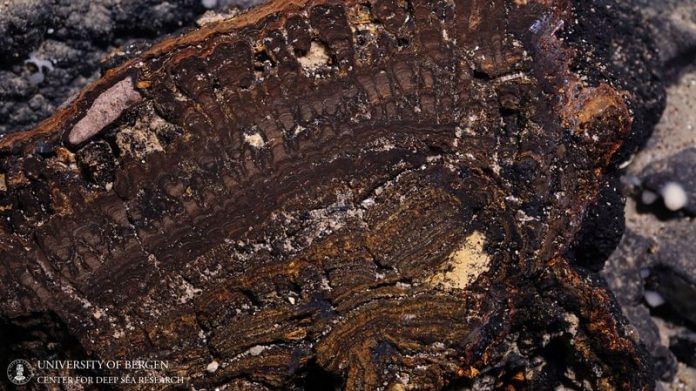By David Stanway
SINGAPORE (Reuters) – A strip of the Pacific Ocean seabed that was mined for metals more than 40 years ago has still not recovered, scientists said late on Wednesday, adding weight to calls for a moratorium on all deep sea mining activity during U.N.-led talks this week.
A 2023 expedition to the mineral-rich Clarion Clipperton Zone by a team of scientists led by Britain’s National Oceanography Centre found that the impacts of a 1979 test mining experiment were still being felt on the seafloor, a complex ecosystem hosting hundreds of species.
The collection of small “polymetallic nodules” from an eight-metre strip of the seabed caused long-term sediment changes and reduced the populations of many of the larger organisms living there, though some smaller, more mobile creatures have recovered, according to the study, published in Nature journal.
“The evidence provided by this study is critical for understanding potential long-term impacts,” said NOC expedition leader Daniel Jones. “Although we saw some areas with little or no recovery, some animal groups were showing the first signs of recolonisation and repopulation.”
Delegations from 36 countries are attending a council meeting of the U.N.’s International Seabed Authority in Kingston, Jamaica this week to decide whether mining companies should be allowed to extract metals like copper or cobalt from the ocean floor.
As they deliberate over hundreds of proposed amendments to a 256-page draft mining code, environmental groups have called for mining activities to be halted, a move supported by 32 governments and 63 large companies and financial institutions.
“This latest evidence makes it even more clear why governments must act now to stop deep sea mining before it ever starts,” said Greenpeace campaigner Louise Casson.
While few expect a final text to be completed by the time the latest round of talks ends on March 28, Canada’s The Metals Company plans to submit the first formal mining application in June.
On Friday, delegates will discuss what actions should be taken if an application to mine is submitted before the regulations have been completed.
TMC said at a briefing last week that it had a legal right to submit an application at any time and hoped that the ISA would bring clarity to the application process.
TMC says the environmental impact of deep sea mining is significantly smaller than conventional terrestrial mining.
“You just have to move a lot less material to get the same amount of metal – higher grade means better economics, but also means lower environmental impacts,” said Craig Shesky, TMC’s chief financial officer.
(Reporting by David Stanway; Editing by Saad Sayeed)
Disclaimer: This report is auto generated from the Reuters news service. ThePrint holds no responsibility for its content.





